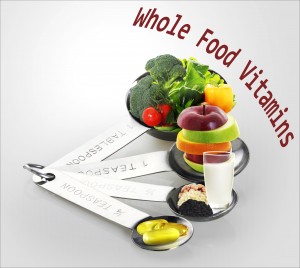Vitamin A Can Be Toxic at High Doses, But Is a Vital Nutrient in Your Diet
Vitamin A Can Be Toxic at High Doses, But Is a Vital Nutrient in Your Diet
 Vitamin A is toxic in high doses, but absolutely vital at lower doses. It controls a large number of processes going on it our bodies.
Vitamin A is toxic in high doses, but absolutely vital at lower doses. It controls a large number of processes going on it our bodies.
It’s involved in turning genes on and off that are responsible for skin and membrane growth (particularly the membranes in the retina of the eye). It’s also needed for proper development of various organs in the developing fetus, and in our immune system. Vitamin A can also act as a cofactor to vitamin D and thyroid hormone.
Vitamin A occurs naturally as a group of six compound that the body can then turn into retinol. Retinol is very important in the growth of cells in the eyes, skin and nervous system.
People with vitamin A deficiency tend to get sick a lot and their illnesses can further deplete the viatmin A levels. The problem in children is even worse as they can get pneumonia, measles, diarrhea and even vision loss. In fact, vitamin A deficiency is the leading cause of preventable blindness in children. This blindness may be due to the formation of cataracts (these are common in older people), or infection and inflammation of the cornea. Any deficiencies in kids really needs to be treated in the first year of life, or surgery may be the only way to restore site.
It’s therefore important to get the right amount of vitamin A. The exact amount of vitamin A that you need depends on age, whether you are male or female, and, if female, whether you are breastfeeding or pregnant. It’s therefore important to check RDA figures yourself or ask your doctor if you think you are not getting enough of this vitamin.
As mentioned earlier, vitamin A can be toxic at high doses. A startling example of this comes from artic explorer Robert Peary. Food supplies were getting low, so he and his men killed a polar bear and ate it, including the liver. The liver of polar bears contain very high vitamin A levels (a lethal dose of polar bear liver would be just 30g or so). The men got sick and several of their dogs died of vitamin A poisoning.
If you eat a lot of fresh vegetables like carrots, kale, spinach and broccoli, then you won’t have a problem with vitamin A deficiency. However, if you think you need a boost, a simply way would be to make your own vitamin A juice at home. I have included a recipe below.
Vitamin A Booster
5 carrots, washed but not peeled.
1 small handful of parsley.
2 big handfuls of spinach.
1 orange
Alternatively you could make yourself a salad, substituting lettuce for baby spinach leaves, and add in grated carrots and chopped parsley. You can of course add in any other ingredients you like.…
Natural Health Products & Whole Food Supplements
 Whole foods are our best source of nutrition and provide the most complete sources of vitamins and minerals. America has become a convenience food nation consuming much of the diet from unnatural food sources. A profusion of evidence has recently come to light suggesting that ordinary synthetic multivitamin supplements may be hazardous to your health. And there will never be any synthetic or chemical ingredients that were developed unnaturally in some lab someplace.\n\nMost professionals recommend an organic whole food vitamin supplement and receiving your daily vitamins allowance from whole food, rather than synthetic vitamins as the healthiest option for longer term benefits. In a way I’m against whole food supplements, since in the long run, it’s really better to just change your habits.\n\nThe whole food source for the vitamins are listed. Unfortunately, most vitamin products fond in healthy food stores and pharmacies, primarily contain synthetic vitamins. Researchers stated that calcium, vitamin C, and other nutrients are not exclusively responsible for the benefits they provide.
Whole foods are our best source of nutrition and provide the most complete sources of vitamins and minerals. America has become a convenience food nation consuming much of the diet from unnatural food sources. A profusion of evidence has recently come to light suggesting that ordinary synthetic multivitamin supplements may be hazardous to your health. And there will never be any synthetic or chemical ingredients that were developed unnaturally in some lab someplace.\n\nMost professionals recommend an organic whole food vitamin supplement and receiving your daily vitamins allowance from whole food, rather than synthetic vitamins as the healthiest option for longer term benefits. In a way I’m against whole food supplements, since in the long run, it’s really better to just change your habits.\n\nThe whole food source for the vitamins are listed. Unfortunately, most vitamin products fond in healthy food stores and pharmacies, primarily contain synthetic vitamins. Researchers stated that calcium, vitamin C, and other nutrients are not exclusively responsible for the benefits they provide. \n\nAs a result, the person will drop excess body fat and experience a steady decline in all the obesity-related risk factors: diabetes, heart disease, stroke, and so on. It all sounds great at first, but a closer look at the complex relationship between people and their foods reveals that this approach is only minimally successful, at best.
\n\nAs a result, the person will drop excess body fat and experience a steady decline in all the obesity-related risk factors: diabetes, heart disease, stroke, and so on. It all sounds great at first, but a closer look at the complex relationship between people and their foods reveals that this approach is only minimally successful, at best. \n\nFor achieving the required potency for nutrients, you only need a food material with some synthetic food base. Further, there is some emerging science that suggests our bodies do not absorb nutrients from supplements nearly as well as it does when those same nutrients come from whole food.…
\n\nFor achieving the required potency for nutrients, you only need a food material with some synthetic food base. Further, there is some emerging science that suggests our bodies do not absorb nutrients from supplements nearly as well as it does when those same nutrients come from whole food.…
